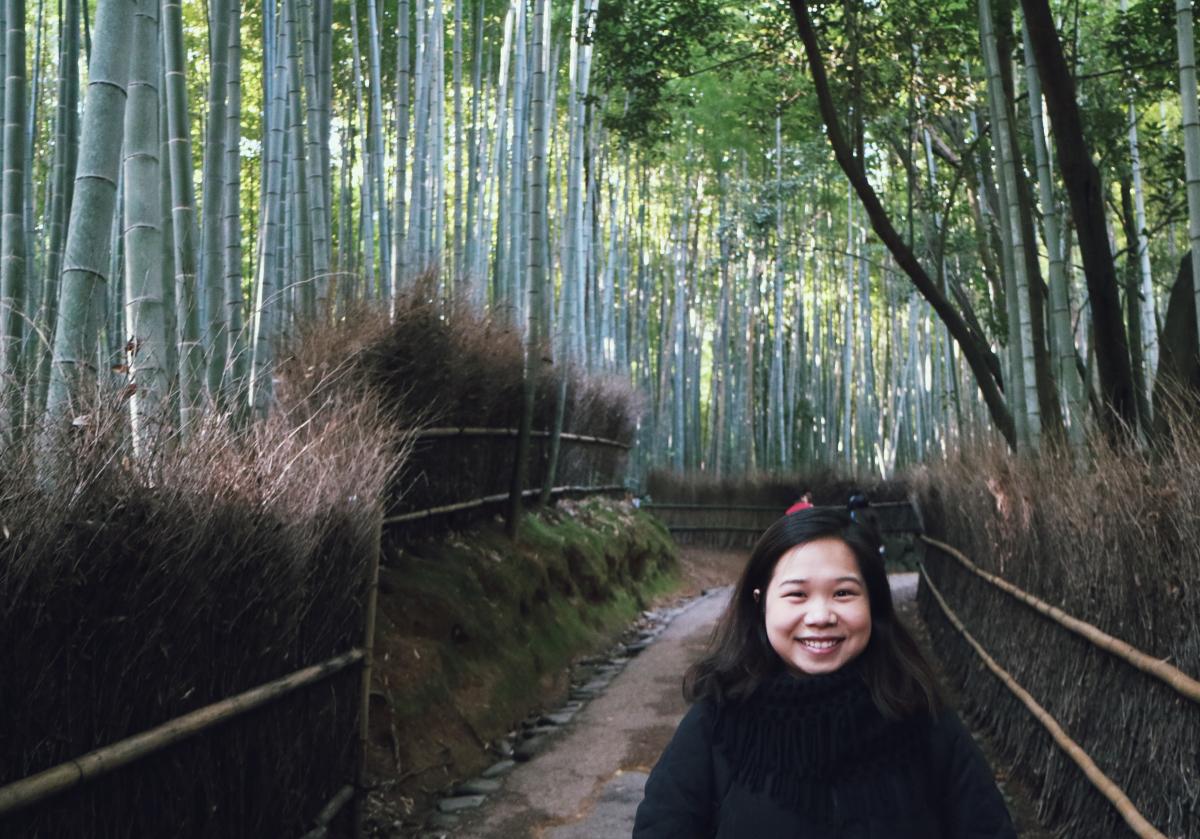Audrey Khoo (PhD Entering 2015 Class)

Tell us about your path to Duke-NUS
I graduated from the University of New South Wales in 2014, with a Bachelor of Science (Hons) in Psychology and Bachelor of Arts in Music. During my time as an undergraduate, I had the opportunity to work with the UNSW Regenerative Neuroscience Group and SMART Recovery Australia. These experiences gave an insight on how people carried out research to study how computer-based brain training might slow ageing, and also how available literature is used to improve current drug and alcohol rehabilitation programmes. I worked with Professor Gavan McNally for my Honours thesis, studying the role of striatopallidal pathway in relapse and reacquisition of alcohol seeking. That was when I knew that I wanted to continue doing research in behavioural neuroscience. I continued working as an RA in Professor McNally’s lab for a while, until I left Sydney.
When I got back to Singapore, I got a job working at a small center that provided neurofeedback services to children with ADHD and ASD, which allowed me to have a go at learning EEG and its applications. I started my PhD in 2015, and am now in Dr. Shawn Je’s lab, which is part of the Neuroscience and Behavioural Disorders Signature Research Programme.
How did you come to know about Duke-NUS and what made you apply?
Since I knew I wanted to do a PhD, I checked out the available programmes at NUS and NTU, and came across Duke-NUS along the way. The decision to apply for Duke-NUS over the other programmes was largely due to the curriculum; Molecules to Medicine, a module which all first year PhD students here take, is basically a crash course on topics ranging from cell and molecular biology, genetics, to bioinformatics and health systems.
One of my main goals was also to have a sturdier foundation in systems biology in order to better understand and interpret research in neuroscience. Although it was a steep learning curve, I learnt a lot from the classes and also from my peers who have very different research interests.
You have quite a unique background. How did you go from studying Psychology and Music to pursuing a PhD in the Neuroscience and Behavioural Disorders (NBD) Signature Research Programme?
I took an interest in behavioural neuroscience but also wanted to understand the brain at a more molecular level in order to have a more holistic approach to studying the brain, hence a PhD in NBD.
I do think that there is overlap between certain aspects of psychology and neuroscience, as one of the common goals of both disciplines is to understand how the brain affects behaviour. Both have methods and techniques to complement each other, and they also provide very different perspectives for each other.
As for music, I took it mostly out of personal interest. But who knows, maybe I could carry out an experiment with my mice to see how music/auditory stimuli affects brain development. That’s provided IACUC approves of that experiment!
What are some of your interests and hobbies?
I’ve been trying to practise painting recently. I’m not very good at it, but it’s something that I can sit down and do for hours, and it’s great fun! I mostly paint plants, which I also really love.
Would you share a fond experience you’ve had at Duke-NUS?
The most memorable experience was having the opportunity to attend a talk by Nobel Laureate, Professor Oliver Smithies. He was such a passionate scientist, and also a very witty and humorous speaker. It was a great privilege to be able to see scanned images of his lab notebooks, listen to his stories on how he got ideas from his environment and how much he loved working in the lab.
Want to know more? Contact Audrey at audrey.khoo@u.duke.nus.edu